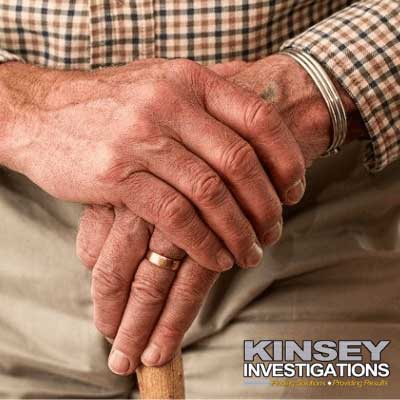What Is Elder Abuse?
Elder abuse is any form of mistreatment that results in harm or loss to an older person. The abuse could take the form of domestic violence, financial abuse, neglect, physical harm, psychological abuse or even sexual abuse.
When older people lose the ability to care for themselves, there is often a network of people collaborating to provide the level of attention and care they need. For people who live in their own homes, this could include family members, nurses or professional at-home caregivers. Others who reside in nursing homes could rely on nurses in the residence, doctors or employees. With so many people involved, it is important to know the early signs of elder abuse. How to identify it and how to report it.

Often, the person who is being abused may not report it. Therefore, noticing signs of abuse early on is critical to stopping it.
What Constitutes Elder Abuse? Abusers rarely own up to their actions unless presented with solid evidence. Even when shown proof, many people refuse to admit that their actions constituted elder abuse. Some may even insist that they were just following orders, or most surprisingly, that they were acting in the best interest of the older adults.
Because each type of abuse is so different, the indicators associated with them often vary:
- Financial abuse could include missing checks, failing to make payments on time, if at all, missing credit or debit cards, missing property, insufficient funds in banking accounts or failing to pay for medical treatment as needed. Unfortunately, statistics point usually to family members.
- Neglect can be committed by all types of caregivers, and the abuse can range from failing to wash clothing to failing to provide necessary medical care. Signs of neglect could include dirty or unsanitary living conditions, poorly managed medications, bedsores, dehydration, malnutrition, and other unexplained or untreated medical conditions. Neglect often leads to leads to serious health and safety concerns.
- Physical abuse generally results in some type of bodily injury or impairment. It could range from cuts and scratches to brain injuries or broken bones. If there is a history of repeated injuries, this also could be a sign. No matter the severity of the unexplained injuries, they should be taken seriously. These physical marks also could be indications of sexual abuse and domestic violence.
- Psychological abuse or emotional abuse is maybe a little more difficult to detect. It could, however, have just as significant of an impact on a person. This abuse could cause the elderly patient to be afraid of a caregiver or person, to become disconnected from family and friends or to act out differently. If a person suffers from a mental illness, his or her actions could be more severe.
If you don’t see the specific service you require on this page, please contact our office. Even if we don’t provide that particular service, we can often suggest an alternative method of achieving the results you need, or in some cases, we may refer you to one of our nationwide or international associates who offer the service you require.












